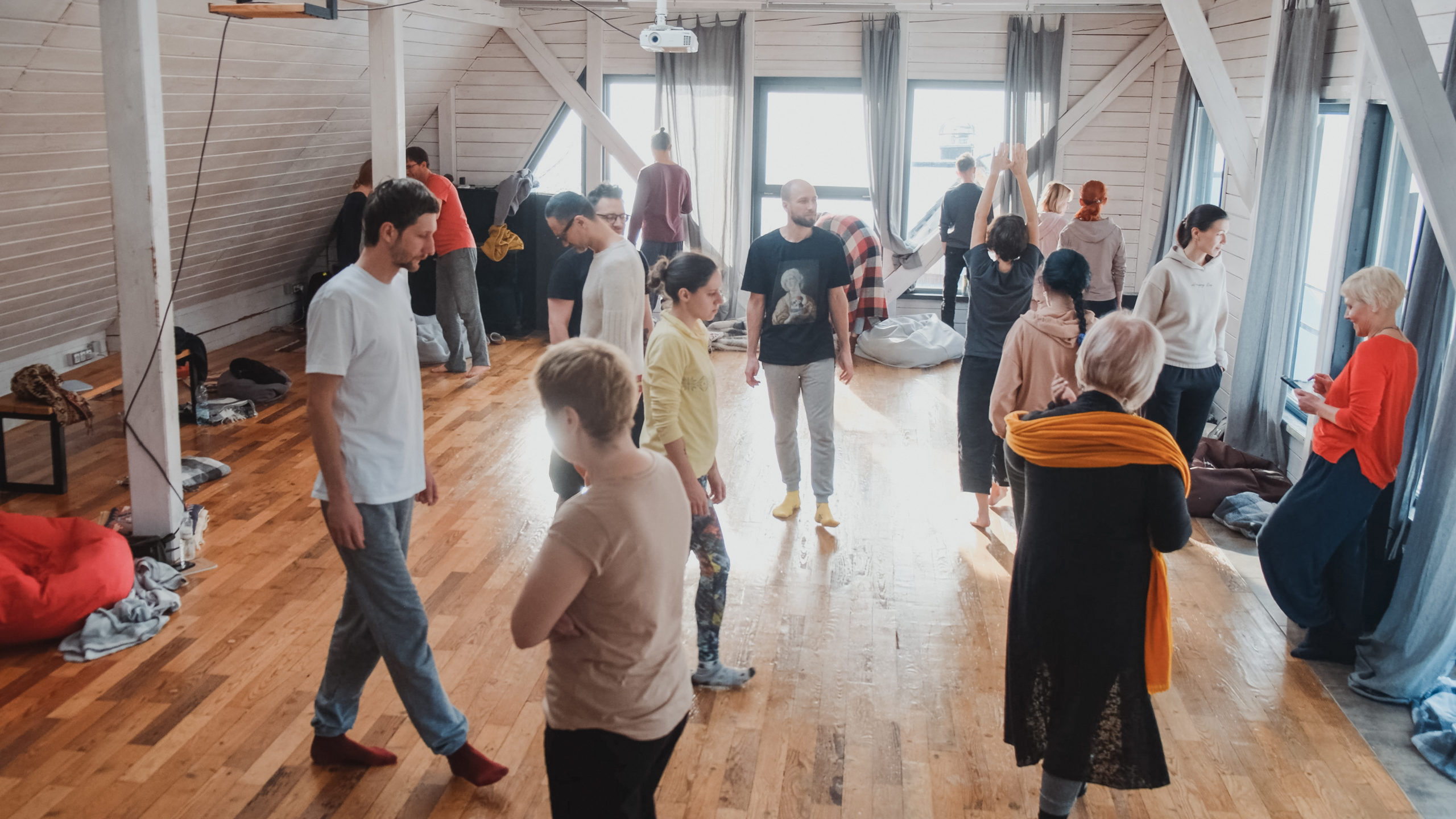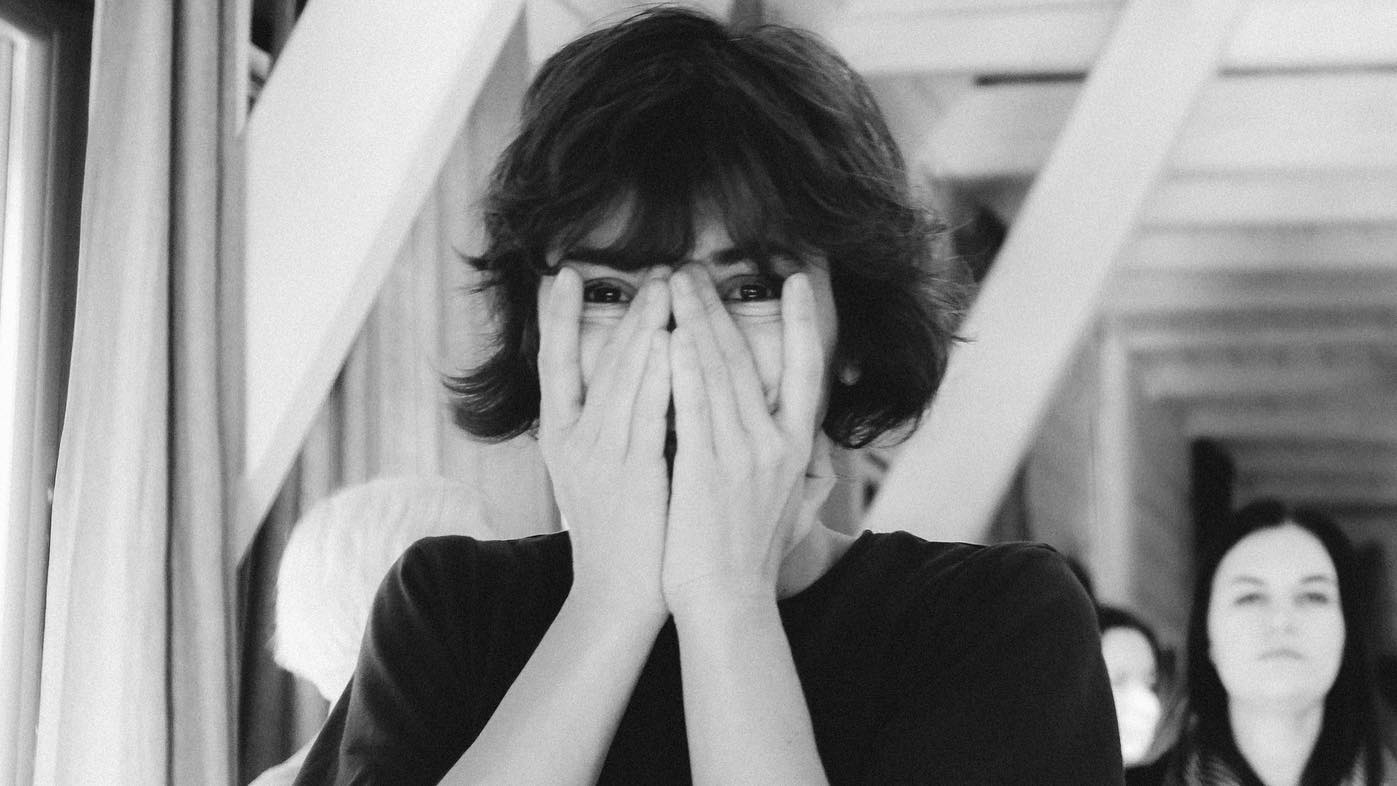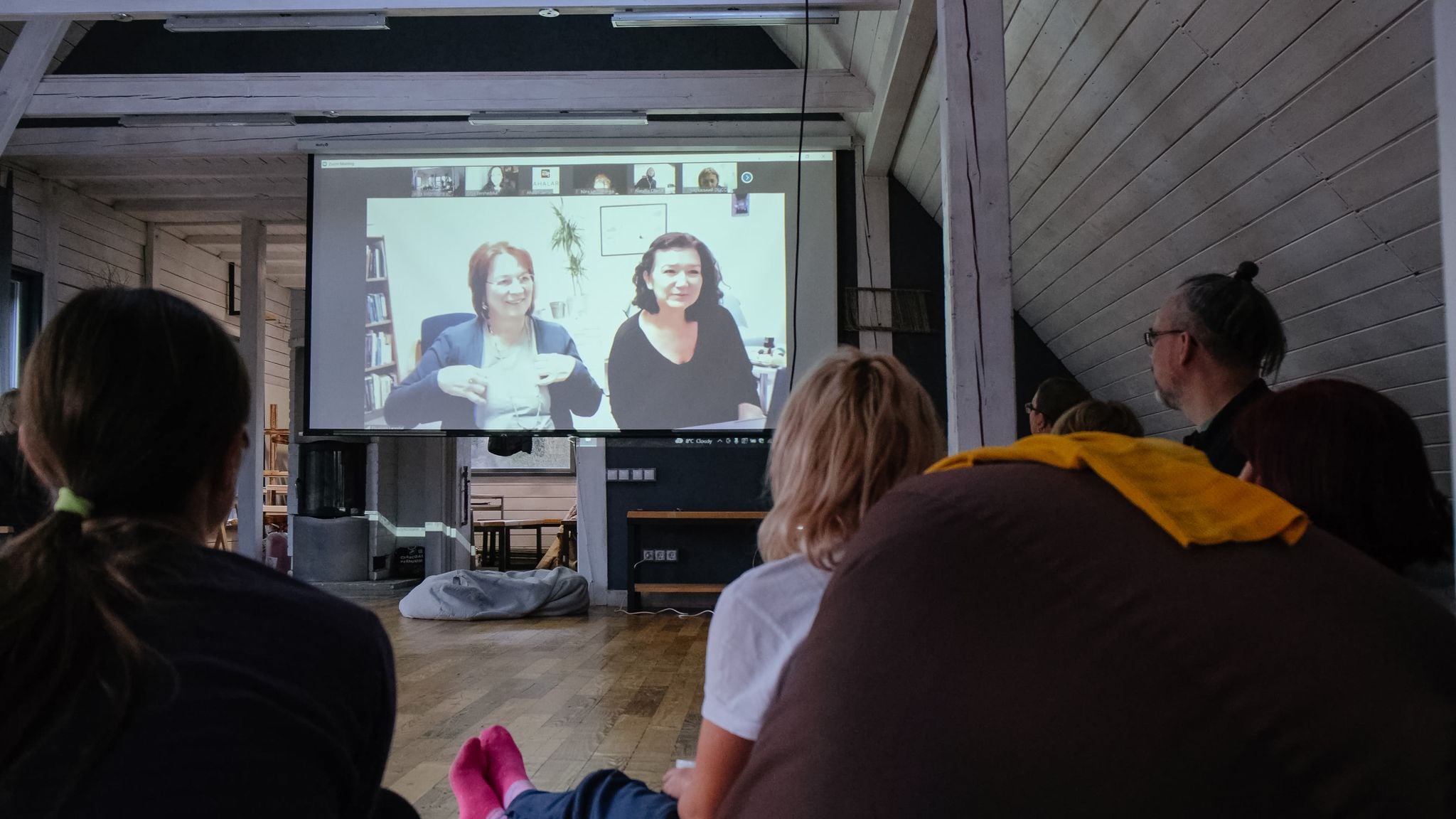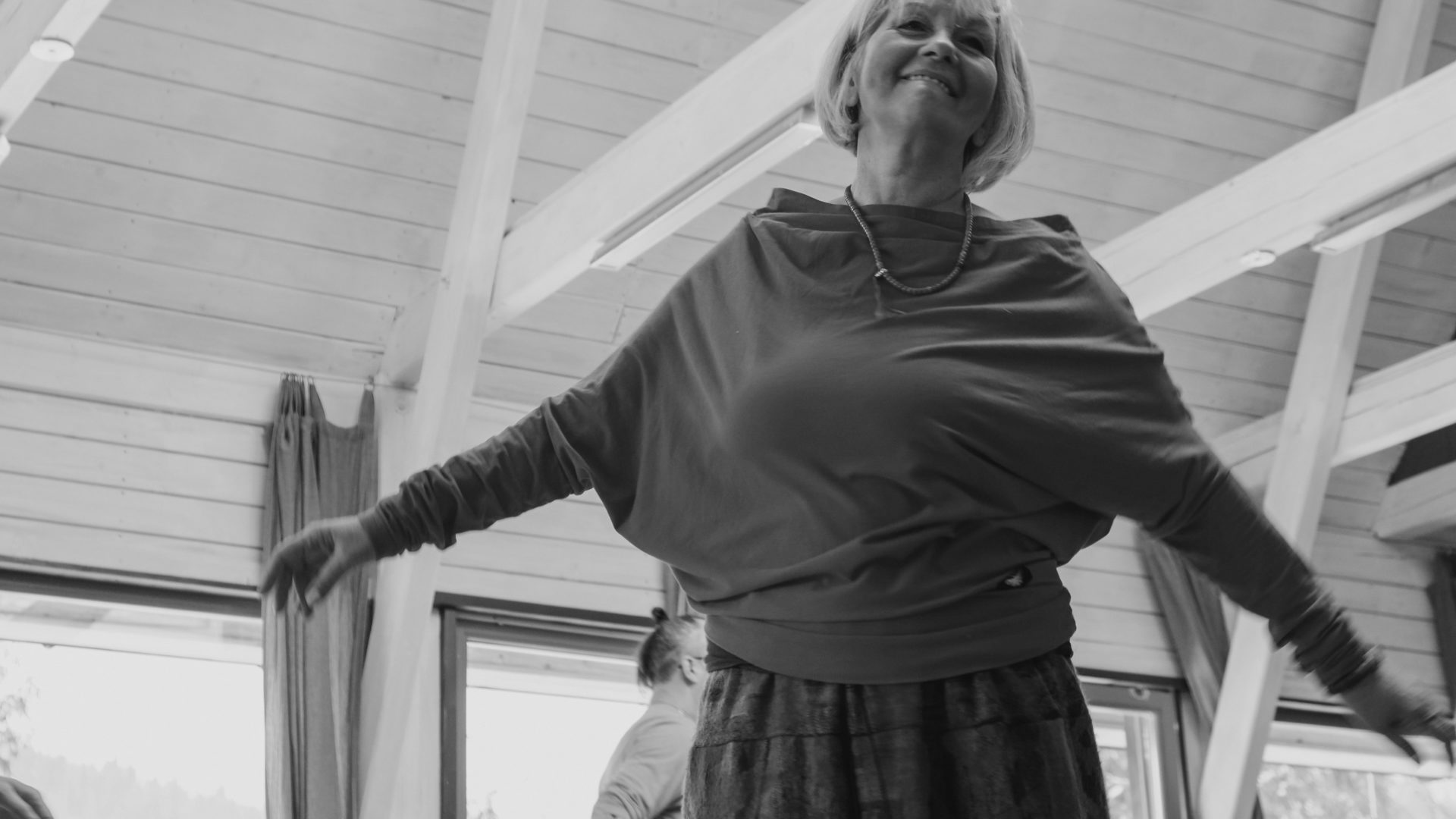Restoring organisational viability after the start of the full-scale invasion
In the beginning, we provided help as needed whenever we received a request.
Wika Solonitsyna (AHALAR)
“When we received institutional support from Human Rights House Foundation’s Strong Civil Society project, funded by the European Commission, it was the only way to restore the organisation’s viability. By the end of March, we revised our initial plans for 2022 and suspended negotiations with donors. Mainly because the war changed the needs of our main target audience – helpers – human rights activists and volunteers. At that time we were regularly asked by organisations or personally by human rights defenders, activists and volunteers for mental health support. But then we decided to focus our activity on several areas after revising priorities,” says Wika Solonitsyna.
Video from 2021 H2H project: At retreat programmes hosted at a facility in Ukraine’s Carpathian mountains, participants learned techniques to cope with anxiety, anger, as well as other mental health stressors.
Following the revision of its priorities, AHALAR provided psychological support and psychoeducation to over 340 people between May and December 2022. This included a 48-hour online course on psychoeducation and methods of nervous system restoration, three five-day decompression / stress management retreats in the Ukrainian Carpathians, and over 80+ hours of individual support for helpers. The series of articles on mental health prepared by AHALAR experts are available to the broader civil society audience with the Civic Prostir web portal and its 8 000 unique daily visitors.
In April 2023 AHALAR announced the start of a new project aimed at helping helpers to “Work without exhaustion”, supported within the Emergency Support Ukraine (ESU) regional project.
Who are the helpers in Ukraine?
The kind of people we work with is changing, and I think it will keep changing all through the war.
Wika Solonitsyna (AHALAR)
“We work with those who provide support to others and we call them ‘helpers’. Before the [full-scale invasion] these were human rights defenders, social workers, psychologists and psychotherapists from NGOs who helped refugees from Belarus, internally displaced people from the temporarily occupied territories of Ukraine, etc. Since the start of the full-scale invasion, the scope has expanded and helpers can now be of many more professions,” continues Solonitsyna.
“For example, creative professionals who used to work in the theatre of Kharkiv, now they help evacuation missions in the hot points under heavy enemy fire. Or a group of people [of different professions] who document everything that is done by Russians [alleged war crimes committed by Russian military in Ukraine] – they also sometimes deal with very heavy issues, which human beings should not normally see and should not experience emotions connected with it.”

“During the last retreat in March 2023 there were mostly psychologists and social workers who provided first psychological support in the Kharkiv, Bakhmut and Donetsk regions, sometimes even in the middle of the field. They also work with people from ZSU [Armed Forces of Ukraine] – who came back home, have psychological disorders and can’t find contact with their families or “their place”… And now there are a lot more people in this group.”
We even had two doctors. From this we understand the increasing demand for such training, retreats, consultations, psychological help – so that people do not burn out, so they could work in such abnormal, often critical situations.
Wika Solonitsyna (AHALAR)
Olha, a volunteer from Kharkiv participated in a “decompression” retreat hosted by AHALAR in November. She shared her thoughts on the retreat afterwards: “I felt a great joy from the fact that [the participants] are so different and I could remind myself again about how to be interested in people and how much we have in common… It feels like you always must give to someone, and taking for yourself is difficult and the fact that there are programmes especially for helpers in which they are told: “You also have the right, you also need it [support]” – it’s great. I’m 100% happy I took part in this programme and grateful to those who made this possible.”
Human Rights House Oslo member organisaton Mental Health and Human Rights Info (MHHRI) has worked alongside AHALAR on the implementation of retreats and other projects. Elisabeth Langdal, Executive Director for MHHRI shares why it is important to support people like Olha: “Through our experience we see that not only do the helpers need tools to support the survivors, but also knowledge about how to support themselves as helpers. This has become even more vital now during the war, when the helpers are experiencing extra hardship in their work, supporting clients and at the same time being in the midst of a war.”
Wartime challenges and cooperation with international partners from the network of Human Rights Houses

Prior to the full-scale Russian invasion, AHALAR worked to promote the culture of mental health and well-being within Ukrainian civil society – work that Wika Solonitsyna says is proving useful in the wartime setting. In 2020 AHALAR teamed up with MHHRI for a H2H project focused on helping Ukrainian specialists working with survivors of gender-based violence (GBV) in the field of civil society and human rights including translating MHHRI’s Mental health and gender-based violence training manual into Ukrainian.
“It was an honour and a joy to cooperate with MHHRI because they have extensive expertise and collect, first of all, practical information about the impact of human rights violations on mental health in contexts of disaster, conflict and war, and back in 2020, for the first time we implemented a project on the topic of gender-based violence. We decided to take up this topic because before the full-scale war it was a taboo subject and the statistics we collected were alarming,” says Wika Solonitsyna.
The Ukrainian translation of the Manual is designed as a resource for those working with or assisting GBV survivors is of increased demand today as the number of cases grows in connection with the full-scale invasion.
In 2021 the two organisations joined forces again for the H2H project focusing on support and rehabilitation of human rights defenders.
“Already then, we saw a lot of people who worked on the edge of their psychological and physical abilities, as they worked for 12-15 hrs a day and could not handle [the pressure] and [consequently] were leaving their organisations that dealt with significant work, i.e. human rights protection, social support and care for refugees from the occupied regions of Ukraine. And this experience was very important in forefeeling the [full scale] war. For instance, many of those who we worked with back then already have a small package of [selfcare] instruments and sometimes when I meet them, they share, that because they already have experience with burnout and big issues connected with it, they use those instruments for prevention: making exercises, some body workouts, breathing practices,” says Wika Solonitsyna.

“MHHRI continues to support our projects, for which we are extremely grateful – in 2022 they voluntarily conducted workshops and supervisions for our project participants, and even now provide practical advice and guidance,” notes Solonitsyna.
“This collaboration was the start of many webinars and training sessions conducted over the years, and our partners in Chernihiv have become more than colleagues, they are our friends. Because of this, we have followed the invasion in Ukraine closely and our previous experience and close relation with AHALAR has been significant in further supporting other organisations with webinars about psychosocial support, helping the helpers and how to deal with trauma reactions,” concludes Elisabeth Langdal.
About AHALAR
AHALAR is a humanistic technologies centre, which develops and implements a programme that allows people to change themselves and situation in their local communities. Its main goal is to contribute to the formation of a harmonious, stable and democratic society in Ukraine. AHALAR is a co-founding member organisation of the Educational Human Rights House Chernihiv.
AHALAR and Mental Health and Human Rights’ collaborative projects ‘Psychoeducation of Ukrainian specialists on providing assistance to people who have been subjected to gender-based and sexual violence’ (2020) and ‘Fostering mental health culture among Ukrainian SJHR community’ (2021) were supported by HRHF’s House to House fund. H2H provides financial and technical support to groups of two or more Human Rights Houses working in partnership to address common human rights issues in their communities. Find out more here.
Thank you to donors and partners
Human Rights House Foundation has supported AHALAR’s work helping Ukraine’s helpers over the course of several years. This support would not be possible without the generous financial support of donors as well as cooperation with regional partners.
In 2023, AHALAR’s project ‘Work without exhaustion – strengthening the resilience and effectiveness of the Ukrainian civil society actors’ is supported within the Emergency Support Ukraine (ESU) regional project. The ESU project is run by Human Rights House Foundation as part of a consortium led by ERIM and partnering with East Europe Foundation, Human Rights House Tbilisi, Barys Zvoszkau Belarusian Human Rights House and the Black Sea Trust, and funded by the European Union.
In 2022 AHALAR received an emergency institutional grant from HRHF under the framework of STRONG Civil Society, which was implemented with the financial support of the European Union.






